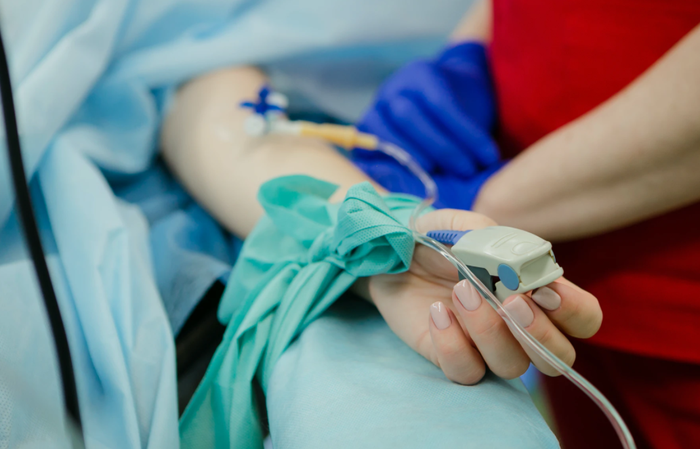Researchers link childhood CT scan exposure to increased blood cancer risk
A team of researchers at Barcelona Institute for Global Health found that childhood exposure to CT scan radiation is linked to an increased risk of blood cancer in the years that follow. The study is published today (9 November 2023) in the scientific journal, Nature Medicine.

We must keep studying how we can limit radiation exposure in those seeking diagnoses, as this could help prevent cases of blood cancer, potentially saving lives
- Sarah McDonald, Deputy Director of Research
What did the researchers do?
The researchers looked at 876,771 people who underwent at least one CT scan before the age of 22.
Researchers estimated the dose of radiation delivered to the bone marrow, where blood cells are produced, of each person.
Scientists then linked these people to national cancer registries of nine countries and identified those who developed a blood cancer over time.
They followed people for an average of 7.8 years, and in some cases, researchers were able to monitor cancer incidence for more than 20 years after the first scan.
What did the researchers find?
The team found a total of 790 blood cancer cases during the study. This included blood cancers that affected the myeloid and lymphoid. This included the forms of blood cancer including AML, Hodgkin’s and Non-Hodgkins lymphoma and myeloma.
Just over half of the cases of cancer were younger than 20 at diagnosis, and 88.5% of those were we younger than 30.
What does this mean?
A dose of radiation at 100 mGy multiplied the risk of developing a blood cancer by a factor of about 3. Today’s average CT scan dose is around 8 mGy.
The findings from this study suggest that a typical scan today, which has an average dose of about 8 mGy, during childhood increases the risk of developing blood cancer by about 16%.
In absolute terms, this means for every 10,000 children that have a CT scan there are 1-2 cases of blood cancer.
Our expert opinion
Sarah McDonald, Deputy Director of Research at Blood Cancer UK, said:
“A CT scan is an important medical procedure for diagnosing disease, planning treatment, and for follow up. While this large and well-run study doesn’t prove a direct cause between a CT scan and blood cancer risk, researchers found for every 10,000 children who have a CT scan, there were 1-2 extra cases of blood cancer in the 12 years following the examination.
“Blood cancer is the UK’s fifth most common cancer, and the UK’s third largest cancer killer and the key message to anyone who has been diagnosed with blood cancer is this: it is not your fault. Risk factors are not the same as causes and there are various risk factors for blood cancer that all interlink, with things like your age, sex and ethnicity playing an important role too.
“We must keep studying how we can limit radiation exposure in those seeking diagnoses, as this could help prevent cases of blood cancer, potentially saving lives. If you have any concerns, you should talk to your healthcare provider and Blood Cancer UK’s team are contactable on 0808 2080 888, if you want any support.”
Keep up with the latest news
Join the Blood Cancer UK mailing list to receive email news and updates.
We will keep you updated about our work and the ways you can help, including campaigns and events. We promise to respect your privacy and we will never sell or swap your details.
